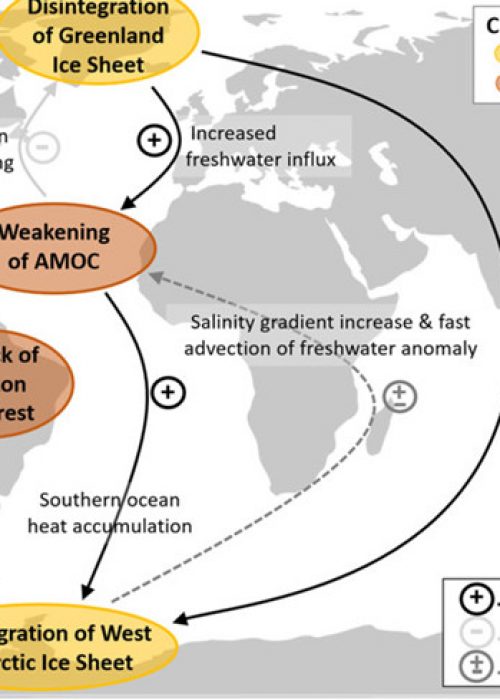Maria A. Martin [Opens in a new window] , Olga Alcaraz Sendra , Ana Bastos , Nico Bauer , Christoph Bertram , Thorsten Blenckner , Kathryn Bowen , Paulo M. Brando , Tanya Brodie Rudolph , Milena Büchs , Mercedes Bustamante , Deliang Chen [Opens in a new window] , Helen Cleugh , Purnamita Dasgupta , Fatima Denton , Jonathan F. Donges , Felix Kwabena Donkor , Hongbo Duan , Carlos M. Duarte , Kristie L. Ebi , Clea M. Edwards [Opens in a new window] , Anja Engel , Eleanor Fisher , Sabine Fuss [Opens in a new window] , Juliana Gaertner , Andrew Gettelman , Cécile A.J. Girardin , Nicholas R. Golledge , Jessica F. Green , Michael R. Grose , Masahiro Hashizume , Sophie Hebden , Helmke Hepach , Marina Hirota , Huang-Hsiung Hsu , Satoshi Kojima , Sharachchandra Lele , …
Cambridge University Press | October 18, 2021
A synthesis is made of 10 topics within climate research, where there have been significant advances since January 2020. The insights are based on input from an international open call with broad disciplinary scope. Findings include: (1) the options to still keep global warming below 1.5 °C; (2) the impact of non-CO2 factors in global warming; (3) a new dimension of fire extremes forced by climate change; (4) the increasing pressure on interconnected climate tipping elements; (5) the dimensions of climate justice; (6) political challenges impeding the effectiveness of carbon pricing; (7) demand-side solutions as vehicles of climate mitigation; (8) the potentials and caveats of nature-based solutions; (9) how building resilience of marine ecosystems is possible; and (10) that the costs of climate change mitigation policies can be more than justified by the benefits to the health of humans and nature.









